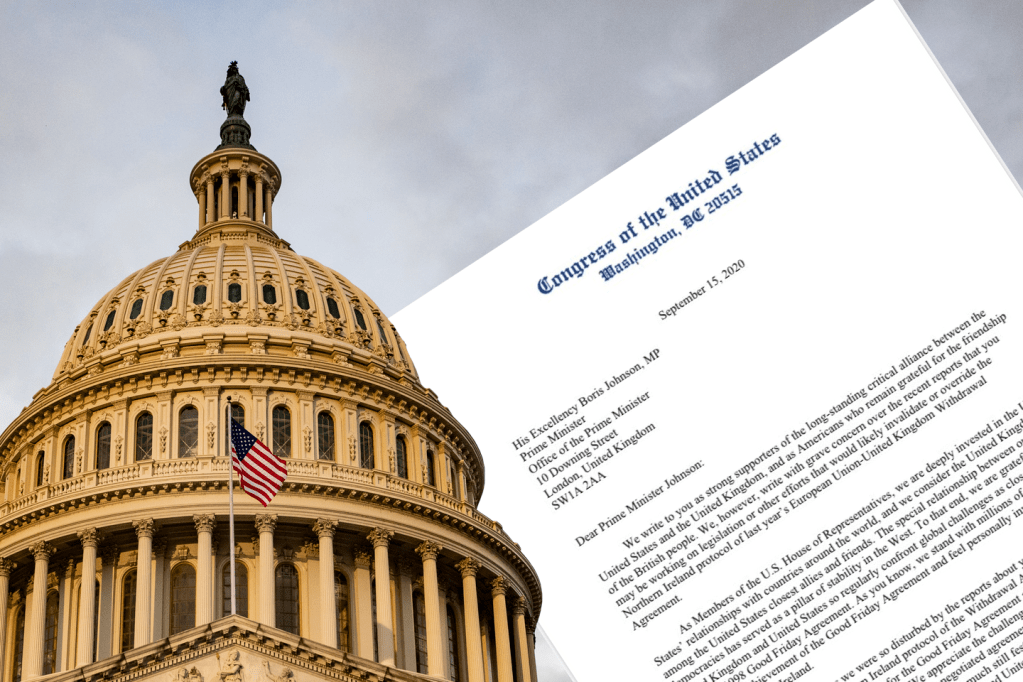Lots of excitement in London this morning over the four ‘senior American congressmen’ who have written a stern letter to Boris Johnson wading into the latest row over the Withdrawal Agreement and Ireland. The four US lawmakers have warned that a US-UK trade deal would be imperiled by any action the government might take that could undermine the Good Friday agreement.
Cockburn can’t help but notice there’s rather less interest in the fact that, of the four congressmen — Eliot Engel, Peter T. King, Richard E. Neal, and William R. Keating — two appear to have been overt IRA sympathizers and one was a close friend of IRA leader Martin McGuinness.
Four senior congressmen write to Boris Johnson to reiterate there will be no US-UK trade deal if the legislation to override the EU-UK Withdrawal Agreement isn’t pulled pic.twitter.com/Q3n7yewn0S
— Sam Coates Sky (@SamCoatesSky) September 15, 2020
Back in 1982, Rep. King told a pro-IRA gathering in Long Island, New York: ‘We must pledge ourselves to support those brave men and women who this very moment are carrying forth the struggle against British imperialism in the streets of Belfast and Derry.’
Three years later he declared: ‘If civilians are killed in an attack on a military installation, it is certainly regrettable, but I will not morally blame the IRA for it.’
This was a source of some embarrassment for King as, after 9/11, he sought to become a major voice in American politics on the dangers of terrorism. Still, that doesn’t stop him lecturing the British government today about ‘not inflaming tensions that still very much fester today.’
***
Get a digital subscription to The Spectator.
Try a month free, then just $3.99 a month
***
Eliot Engel, for his part, in 1988 urged President Reagan to grant asylum to the IRA terrorist Joseph Patrick Doherty, who fled his trial for killing an SAS soldier in Northern Ireland in 1980. Doherty had escaped to America after the killing and was being held in New York.
And Rep. Neal, as head of the Congressional Friends of Ireland group, organized a ceremony in remembrance of ‘his close and dear friend’ Martin McGuinness in 2017.
It saddens Cockburn to recall that unhappy time when, for a certain sort of American statesman with Irish Catholic roots or voters, supporting the IRA over their colonial British masters was de rigueur. The past is the past, but perhaps we should all bear it in mind when considering their motives in warning Britain about possible troubles in Ireland.
This article was originally published on The Spectator’s UK website.


















